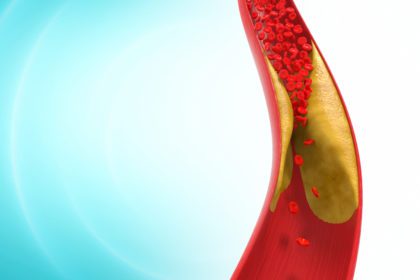Research suggests that your personality type can be a risk factor for cardiovascular disease. Type A’s were once known to be prone to having heart attacks. But there’s also a type B, C, and D personality. Where do you fit in and are you prone to having heart problems?
The A, B, C, and D’s of Personality
Type A: Hard-charging, competitive, driven
Type B: The opposite of A: low energy, relaxed, not easily aroused
Type C: Suppresses emotions, avoids conflicts, strives to be nice
Type D: Negative emotions, pessimistic, doesn’t share emotions
Type A’s and Heart Attack
- In the 1970’s and ’80’s, the type A personality became a popular buzzword. Having a type A personality was associated with having an increased risk for heart attacks.
- However, subsequent studies do not show a link, but having a type D personality has pointed to an increased risk of cardiovascular disease (CVD).
The “Distressed” Personality
Type D characteristics:
- Have high level of emotional distress
- Reluctant or unable to open up to others
- Are inhibited socially
- Keep people at a distance
- Have a pessimistic view on life
- Worry a lot
Type D’s and Death (4 Studies)
- A 2004 study revealed that type D personalities were four times more likely than average to DIE or have a HEART ATTACK within 9 months of stent placement.
- Stents are permanent wire mesh stainless steel tubes implanted in an artery to hold it open and keep it from closing again.
- Fatty deposits (plaque) can build up within the artery wall and block blood flow. Most heart attacks and strokes occur when the plaque ruptures (cracks) and platelets rush to the area in an effort to ‘patch’ the ruptured area. These platelets can grow quickly and form a large life-threatening clot. How to Stop a Heart Attack
- Per an earlier study, subjects were studied for a period of 6-10 years and found mortality rates differed significantly:
- 27% higher mortality rate (type D personality types with CVD)
- 7% mortality rate (were NOT type D)
- Duke University studied 5-year survival rates in 1,300 subjects with CVD and found:
- 50% survival rate (patients who did NOT have a close confidant, i.e., spouse or close friend
- 82% survival rate (patients who had a confidant)
- One study reported that an elevated heart rate during sleep amongst people who were frequent worriers (a characteristic of type D’s). An elevated heart rate can potentially increase risk of CVD. 10 Tips to Sleep Better Tonight
Stress Hormone Affects Heart-Brain Health
- Type D personalities are trapped in their negative emotions and are subject to high levels of stress.
- Since type D’s do not get help or share their anxieties, they are unable to relieve that stress.
- Researchers link these traits to increased amounts of cortisol (stress hormone) circulating in the bloodstream.
- When the body responds to a threat known as the “fight-or-flight” response, it releases cortisol. More or less cortisol is released based on the level of the threat.
- This state of readiness causes an increase in blood pressure, heart rate, blood sugar release, a constriction of blood vessels — all cardiovascular effects.
- Chronic exposure to cortisol can compromise the heart and likely the brain as well.
How to Overcome Type D-related Heart Disease
- Behavioral interventions: A 2005 study published in the Journal of the American Medical Association concluded that behavioral interventions can help type D personalities.
- Aerobic exercise
- Stress management techniques, e.g., meditation or biofeedback

Karen’s Fit Tip: There is strong evidence that negative emotions and suppressing your emotions can have negative health consequences. Try to reduce your stress and worrying. Coming up next… Breathe to Stress Less





